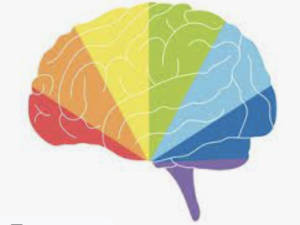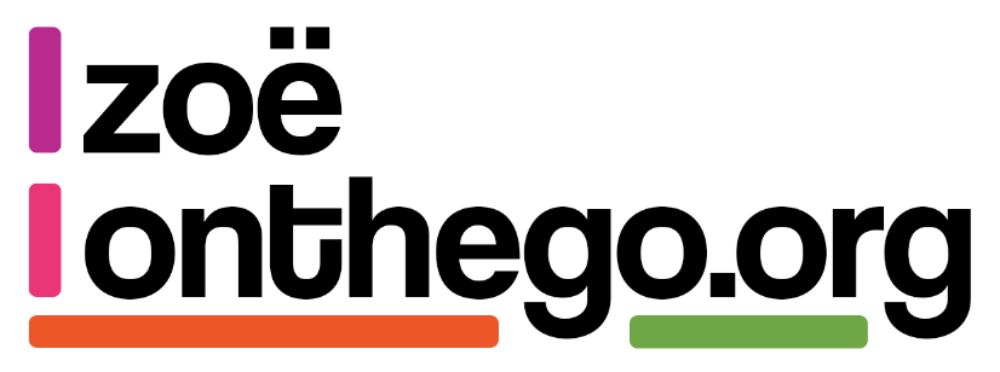Discussing Intersectionality in the LGBTQIA+ & Neurodivergent Community

As a queer woman with ADHD, the subject of intersectionality is one I’ve always been interested in.
There have been numerous discussions and studies about the links between people with Autism Spectrum Conditions (ASC) and Gender Dysphoria; with the theory being that there are many Trans/ gender-diverse folks who have ASC; perhaps because (in the words of an acquaintance of mine) “folks with ASC are less likely to just accept societal gender rules without questioning them when they make no logical sense”. This sentiment certainly seems to be backed up by the data; with one study of 641,860 people finding that “about 5%, of the cisgender people in the study had autism, whereas 24% of the gender-diverse people were also Autistic.”
I’m Cis and I don’t have ASC; so I’m in no way qualified to comment on any possible links; and why or why not they might exist; and I will leave that conversation to people who are far more informed than I. However, what I can comment on; at least from my looking around my own friendship group and social media; is that there does seem to be a significant overlap between LGBTQIA+ folks and those who are neurodivergent of some flavour or other (although sadly there’s no specific data on this subject).
3% of people in the UK identify as LGBTQIA+ (according to the ONS; but it’s acknowledged it’s likely to be closer to 10% as underreporting is still an issue due to the amount of stigma that still exists) but let’s just say 3% for now; and 15% of the UK population is estimated to be neurodiverse. There is evidence to suggest that neurodiverse people are more likely to be gender diverse and/or identify as lesbian, gay, queer, or asexual themselves, compared to neurotypical people. One study in 2008 found that more adults with ADHD identified themselves as bisexual compared to individuals without ADHD. Again, the predominant theory as to why more neurodivergent people identify as LGBTQAI+ is that “if you are positioned to question “norms” than you are automatically more willing to embrace a non-conforming gender identity or sexuality.”
Ok, more neurodivergent people identify as LGBTQIA+, so what?
Well firstly; it’s important to recognise that there are lots of parallels between the experiences of neurodivergent people and LGBTQIA+ people; with some neurodivergent folks describing having to ‘come out‘ at work or to friends/family as neurodivergent; in the same way LGBTQIA+ folks have to ‘come out’ about their sexuality. Interestingly I found it much harder and got much more backlash from my parents when I told them I had ADHD than I did when I told them I was Queer.
Being Neurodiverse, like being LGBTQIA+, also still comes with a lot of stigma; and both neurodiverse and LGBTQAI+ folks still face a lot of discrimination. There are ‘charities’ and organisations out there dedicated to finding a ‘cure’ for folks with ASC just like there are for ‘curing’ or finding the ‘cause’ of being Queer; with conversation therapy being a harmful ‘tool’ used against both neurodiverse and LGBTQIA+ people in an attempt to ‘normalise’ them.
Secondly, it’s important to recognise that because of the above; folks who are both neurodivergent and Queer (I’ve seen this referred to in some circles as being NeuroQueer) can face double the amount of prejudice, discrimination, and hurdles to overcome. As the Equality Network explains; “having an intersectional identity often generates a feeling that someone does not completely belong in one group or another, and can lead to isolation, depression and other mental health issues.”
Many LGBT-focused organisations sadly have little knowledge of, for example, disability or race issues, which can lead to people feeling excluded or shut out of the community. In 2019 Brighton Pride faced accusations of running an inaccessible pride event, with disabled LGBTQIA+ folks feeling excluded from attending; and they weren’t the only one facing this accusation. This has led to an increasing number of conversations happening recently about how to make Pride events inclusive to people with disabilities.
Recognising the importance of intersectional inclusivity, “several organisations and groups in the UK have been set up to specifically cater to Queer disabled people’s needs, like Brownton Abbey, “where queer, black and brown disabled folks reign supreme”, ParaPride, who work with venues to improve accessibility, and LGBTQ+ Disabled Queer and Hear.”
But this isn’t just something that LGBTQIA+ or Neurodiversity focused organisations need to consider; it’s also equally important for every businesses to recognise the importance of inclusivity and intersectionality when they are considering how they support their staff; or develop services for people to use. As an example, addressing issues that may affect the recruitment or retention or promotion of LGBTQIA+ folks in a way that’s not inclusive of neurodiverse people will likely not have the impact you’re hoping for; and vice versa. Sadly, only 1 in 10% organisations in the UK take neurodiversity into consideration as part of their people management process; and this lack of support is likely to impact Queer staff more.
As it’s Pride Month, and many organisations are considering how they support LGBTQIA+ folks better; it’s extremely important that we focus on creating inclusive environments that respect every part of people’s identity rather than focusing on singular elements of it.

(Race is another important area of intersectionality that I haven’t touched on in this blog; as a white person I’m really not qualified to comment on that so, I won’t touch on that here and will instead provide some links below and defer that topic to those with more lived experience and knowledge of the issues that need addressing.)
Other useful links:
- Black & LGBTQ+: Approaching intersectional conversations
- Something for them: Meeting the needs of same sex attracted, sex and gender diverse young people who are recently arrived, refugees or asylum seekers.
- Out Leadership – Why neurodivergence is also an LGBTQ+ topic (link to where you can watch the panel discussion)
